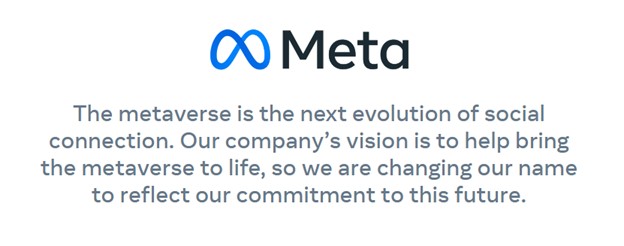Extreme Bearishness
Facebook, recently rebranded as Meta Platforms Inc. (FB), is down 52% from its September 2021 high and now sits at a 52-week low. The recent downturn came after the company reported its quarterly earnings back in February. The stock downturn was related to capital investment in its metaverse initiatives, concerns from growing competition via Snap and Tik Tok, and the ongoing privacy changes by Apple.
Meta is placing the future of the company’s growth and end markets in the metaverse space. Meta’s collective platforms via Facebook, Instagram, WhatsApp, and Oculus will continue to drive growth while the metaverse is built out and overlaid across these platforms. The recent 50% reduction in the company’s valuation places Meta in very inexpensive valuation territory and, relative to its technology peers, one of the cheapest high-growth stocks. With a firm pivot towards future end markets via the metaverse along with its social media prowess, its valuation is very appealing at this juncture.
Wall Street’s Bullish Sentiment
Analysts across the board are seeing the current levels as a very attractive point to accumulate Meta shares for long-term appreciation. KeyBanc Capital Market’s Justin Patterson, “Meta still offers attractive returns right now to investors, and there isn’t much downside from these levels,” “payoff potential for Meta is really good provided they can execute its plans to grow the Metaverse.” “Meta has historically managed these transitions before and come out stronger,” Patterson wrote. Continue reading "Reconciling Meta's 50% Sell-Off"

